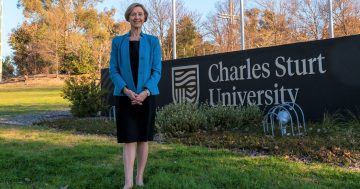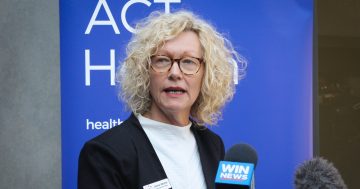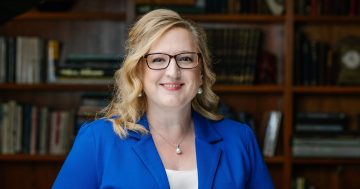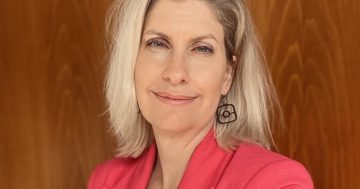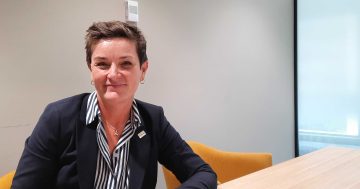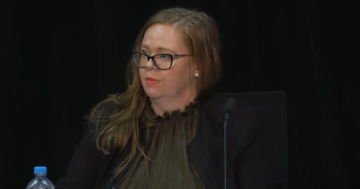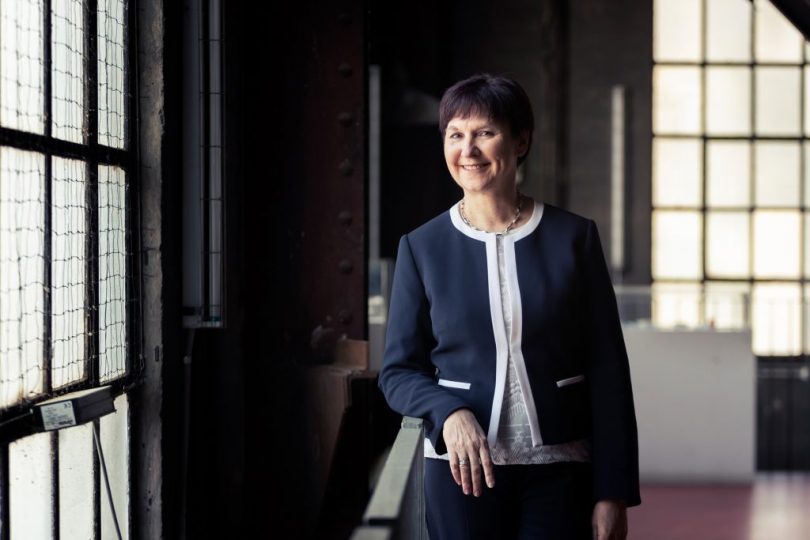
Kerri Hartland had a 30-year stellar career in the public sector and is still making an impact with consultancy Proximity. Photo: Proximity.
Change is not a friend to all, but former top public servant Kerri Hartland has not only welcomed it but thrived in its embrace across a 30-year career in the public sector.
In fact, she made her name as a change agent in a diverse range of departments and agencies, ranging from Human Services where she oversaw the merger of Centrelink, Medicare, the Child Support Agency and the Commonwealth Rehabilitation Agency, to ASIO, where she became its first female external Deputy Director General and led a major transformation of the organisation.
As Secretary of the Department of Employment, Skills, Small and Family Business she was responsible for leading the most significant transformation of the employment services system in more than 20 years since the disbanding of the CES but ironically found herself out of a job in 2019 when the government crunched 18 departments to 14 in a big shake-up of the bureaucracy.
My Public Sector
Typically, that became yet another opportunity for Ms Hartland. She spent the first half of 2020 assisting Sir Peter Cosgrove with efforts to support small businesses recover from the bushfires and the pandemic before joining consultancy Proximity as Principal Adviser.
Ms Hartland began her working life as a journalist and attributes her eclectic swag of roles to the traits of her first profession – being an inquisitive generalist, distiller of information, networker and people-person always looking for the next challenge.
“I like that diversity of work, lots of different organisations and subject matter that sate my appetite for learning and being inquisitive,” she says.
The journalist’s trademark of breaking down complex pieces of information into simple messages was an invaluable skill, especially when preparing briefs for ministers.
That penchant for change often meant she was the one who got the call to take a section or agency in a different direction.
“I was often tapped on the shoulder to come into areas that might be a bit dysfunctional or not as high performing or that there was just some new piece of work where a team needed to be brought together,” she says.
“I didn’t ever find those things daunting. You’re applying the same sort of skill set – good strategy, being a good communicator, distilling ideas, being a people manager – wherever you went.
“I remember a Secretary saying to me at one stage, ‘You’re the troubleshooter, you’re the person that people tap on the shoulder when they’ve got hard issues, to come and work through and bring a team together to deliver on’.”
Now she is managing her own change as she adapts to the private sector environment where not just her skills but her extensive public sector experience is being put to good use in business, team and skills development, as well as doing lots of work in her hallmark areas of change management, good governance, strategy across a diverse range of government agencies.
It’s an experience that has given her an appreciation for what the private sector approach can bring to the public service.
“It’s allowed me to look back across the public service and see where there might be capability gaps and advise at leadership levels,” Ms Hartland says.
“It is different. If I went back into the public service, I’d be a much better leader for having done this work.”
She lists a greater acceptance of risk, new ideas, innovative thinking, rapid project response and flatter organisational structures on a day-to-day basis, and not just at crisis points such as the pandemic, as some of the features that have impressed her.
The private sector brings together skillsets without having silos and the constraints of hierarchy, she says, something that the current public service reforms flowing from the Thodey review are tackling.
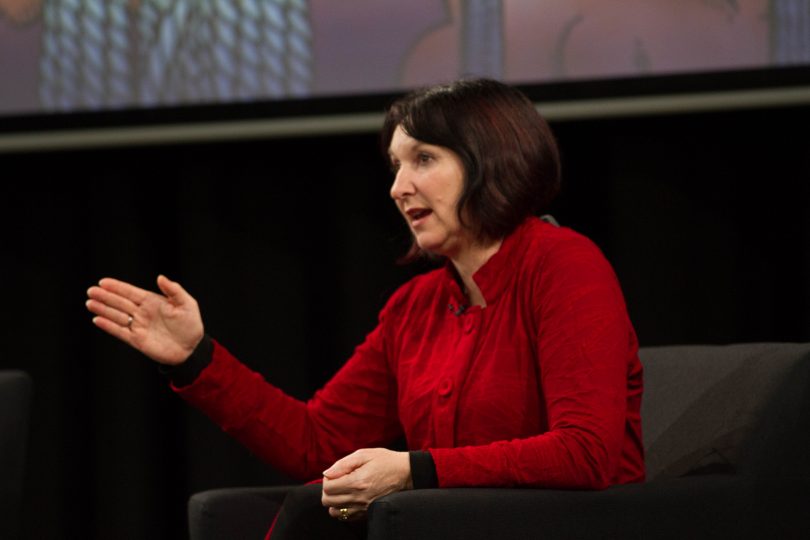
Kerri Hartland when Secretary of Employment, Skills, Small and Family Business. Photo: Australian Government.
Ms Hartland supports a greater exchange between the two sectors, saying the days of the public service having a monopoly on ideas and expertise are long gone.
While the use of consultants in the public sector has come under fire, Ms Hartland has always seen a role for consultants to plug capability gaps, but the public service needed to work out what its core business is.
“If you’re consulting into government’s core business, then the role should be about developing that capability so that on a day-to-day basis, the public service can be performing the key roles that it should be,” she says.
It also makes sense to bring in help from outside on set pieces of work that only span a specific timeframe.
“That’s smart, efficient and effective use of government money,” she says.
While the COVID response has highlighted the public service’s strengths, it has also meant some reforms have been put on the backburner and exposed capability gaps.
“What I’m seeing at the moment, there are things that should be core business that the public service are not able to perform because of a lack of capability,” Ms Hartland says. “That’s where consultants can help.”
She warns against the public service falling back into old habits after the pandemic response subsides, particularly cross-agency and interdisciplinary cooperation, as well as the flexible working arrangements of working from home and remotely.
That flexibility needs to become a norm; otherwise, it’s going to be hard to attract the brightest and best from the private sector, she says.
As a pioneering woman in the APS, Ms Hartland is a champion for diversity, but it wasn’t always the case.
While the lack of senior women around the table was obvious 20 or 30 years ago, Ms Hartland never experienced anything stopping her from climbing the ladder and benefited from her male mentors who saw something in her she didn’t recognise herself.
But she did feel the extra pressure of being the only woman in the room and needing to do not just a good job but a better job because she would be remembered.
When she landed the ASIO role in 2011, the “rubber hit the road” when it came to shouldering the responsibility of being a role model for other women making their way in the public service.
“It did play on my mind because if it didn’t work, this organisation will never want a woman in that role again and never want an outsider in the role,” she says.
“Before that, I’d always shied away from being that female champion and diversity champion.
“It was only at that time that I went, ‘Well, if I’m not going to do this and be really supportive of diversity in all its forms, then maybe others aren’t going to do that’.”
Ms Hartland has two daughters and the alleged sexual assaults at Parliament House have concerned her.
“For me, that happy day will come when these issues don’t exist, and we’ve got true equity, true diversity in all organisations, and we’re not having to talk about salary differences and poor workplace behaviour,” she says.
Her advice to young women in the public sector is to find models and mentors, male or female, that have the values and leadership style that one aspires to, and find ways of developing confidence so they can have their say around the table.
Having that say, particularly when it comes to advising ministers, is something all public servants need to remember, Ms Hartland says, pointing to a blurring of the line between the two roles in recent times that can lead to unwanted second-guessing.
“A senior minister said to me the other day they were fearing that people in their department were misreading that interaction or those roles, and they really wanted that frank and fearless advice and to let the minister worry about the politics,” she says.













